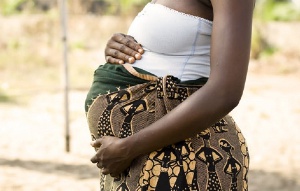A number of unapproved charges by some health facilities are making it difficult for poor pregnant women to enjoy the full benefits of the Free Maternal Care Programme under the National Health Insurance Scheme (NHIS).
Some health facilities continue to charge between GHc30 and GHc100 without receipts before pregnant women are discharged after delivery.
Other facilities also charge between GHc3 and GH¢4 for specimen bottles for laboratory tests and kits for pregnancy tests, respectively.
As a result of this, even though antenatal attendance has increased across the country, supervised delivery has reduced.
This was contained in a study on the NHIS conducted by Send Ghana, a non-governmental organisation (NGO).
The study, which assessed the extent to which the poor are able to access health care through the NHIS, was conducted in 120 communities selected from 20 districts in the Greater Accra, Northern, Upper East and Upper West regions.
Titled: “Is the National Health Insurance Scheme pro-poor? The need to make inclusive progress on health outcome,” the study also discovered that in the Upper West Region, only 14 per cent of the extremely poor population had registered for the scheme, even though the extremely poor made up 45 per cent of the region’s entire population.
Indigents
Launching the report in Accra over the weekend, a programme officer of Send-Ghana, Mr Adamu Mukalia, said it was unfortunate that more than 2.2 million people described by the Ghana Statistical Service as extremely poor had not registered on the NHIS, one of the government’s social intervention policies, adding, “Such people, considered as indigent, were to be excluded from the NHIS premium payment.”
He said even though there had been an increase in subscription to the scheme, which had made it possible for many poor and vulnerable people to get access to health care, quality of health care had been compromised.
“This could be attributed to the increased number of people on the scheme, coupled with the financial problems it is experiencing,” he stated.
Financing gap
The Executive Director of the Health Insurance Service Providers Association (HISPA), Mr Frank Torblu, stated that if the challenges facing the scheme were not addressed, it would eventually collapse.
“As of October 2015, the NHIS had a financing gap of GH¢258 million and this will get worse as more people get on board if the financial challenges are not addressed,’’ he said.
Health News of Monday, 9 November 2015
Source: Emmanuel Ebo Hawkson

















